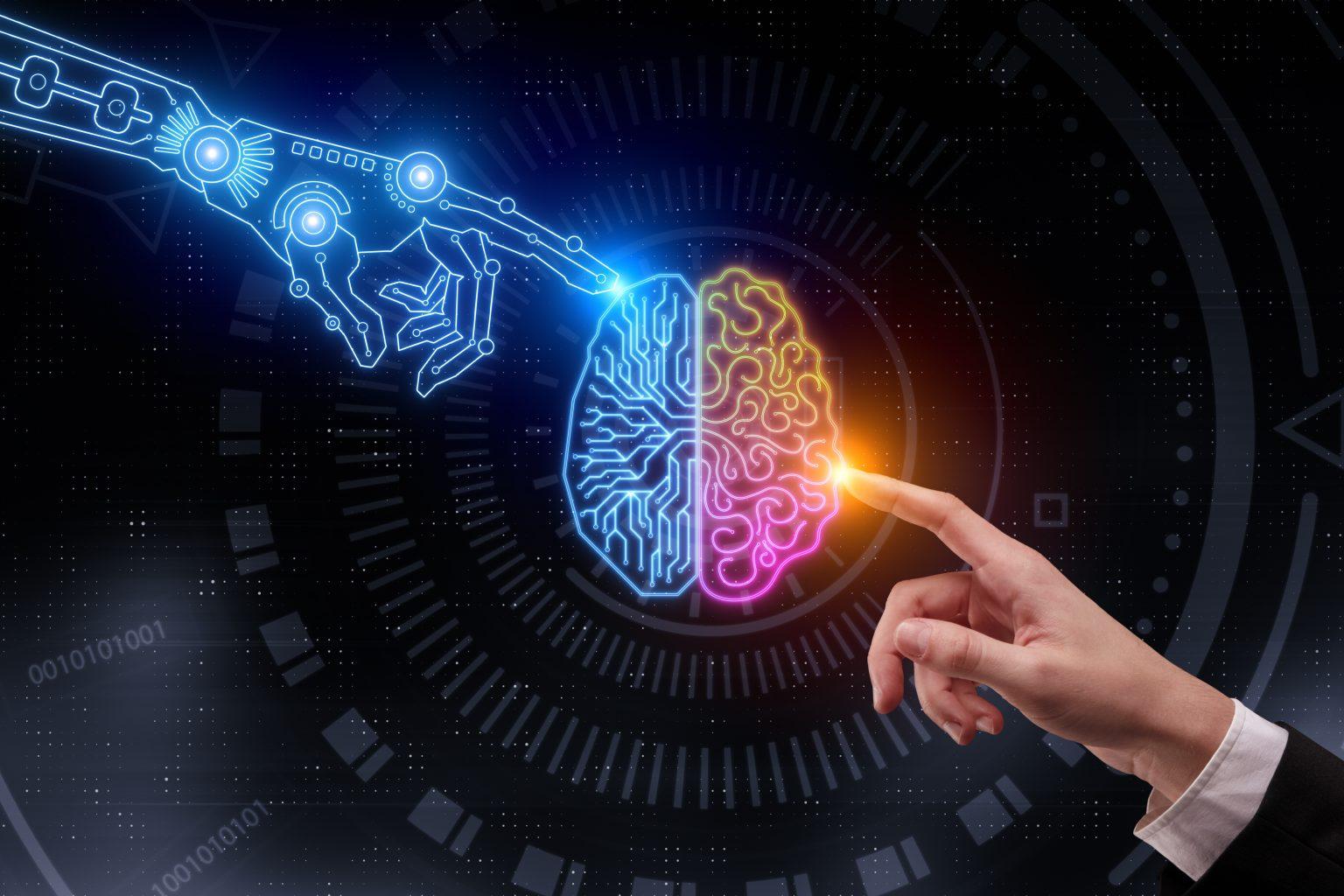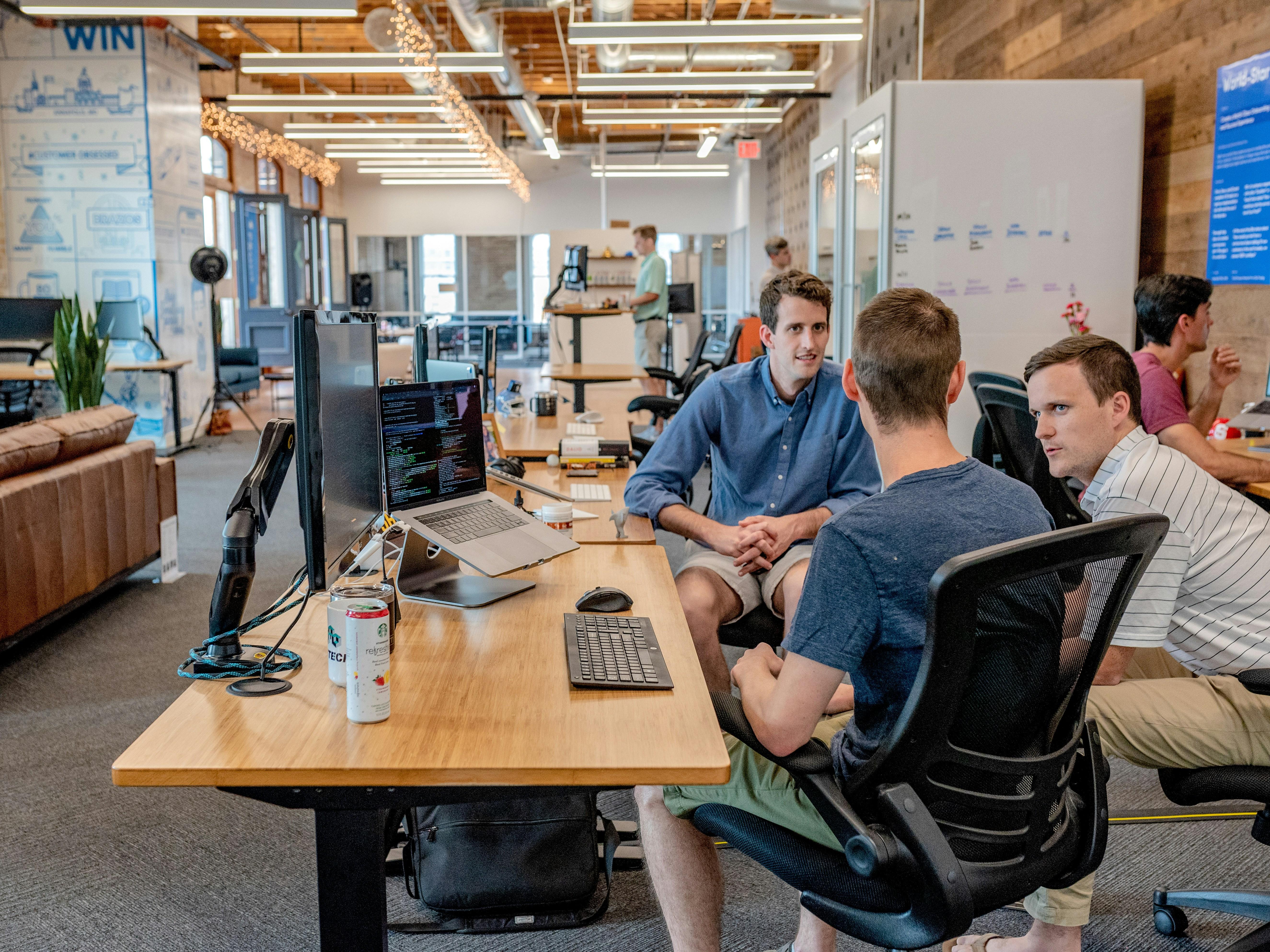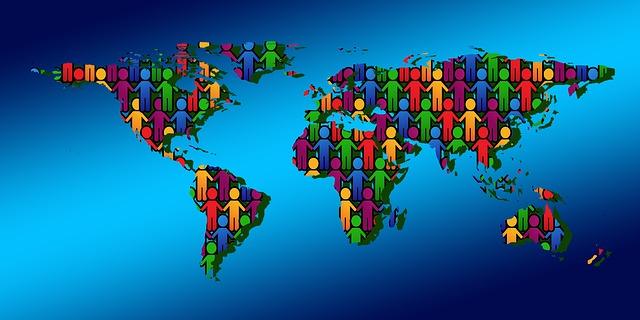
In the dawn of a new era, where silicon meets consciousness, the intricate dance between artificial intelligence and humanity unfolds before us. As we stand on the precipice of unprecedented technological advancement, the question looms larger than ever: how will we navigate this uncharted territory together? The symbiotic relationship between AI and humans is not merely a tale of algorithms and codes; it is a narrative interwoven with our very essence—our aspirations, our fears, and our capacity for creativity. In this exploration, we delve into the profound implications of our shared evolution, examining the ways in which AI reshapes our understanding of intelligence, ethics, and existence itself. As we embark on this journey, we must seek to understand not just how AI can enhance our lives, but also how it challenges our perceptions of what it means to be human. Join us as we navigate the complexities and possibilities of this new frontier, contemplating a future where the line between man and machine becomes increasingly blurred, yet filled with promise.
AI as a Collaborative Partner: Redefining Human Potential
As artificial intelligence continues to evolve, it is indeed becoming an integral collaborative partner for humans, augmenting creativity and enhancing decision-making processes. By leveraging AI’s analytical capabilities, individuals and organizations can explore new realms of possibility that were previously unimaginable. This partnership allows humans to focus on core emotional and strategic tasks while AI tackles vast data sets and offers insightful solutions. The implications of this synergy are profound and can lead to breakthroughs across various sectors,including education,healthcare,and the creative arts.
Some of the ways in which AI is redefining human potential include:
- Enhanced Creativity: AI tools can inspire new ideas and approaches in art, music, and literature, enabling creators to push boundaries.
- Improved Decision-Making: With AI analyzing data patterns, individuals can make more informed decisions, reducing the risk associated with uncertainty.
- Personalized Learning: AI can adapt educational content to meet individual learner needs, fostering an inclusive environment that promotes growth.
- Health Advancements: In healthcare, AI assists practitioners by predicting patient outcomes and suggesting treatment options based on comprehensive data analysis.
| Sector | AI Contribution |
|---|---|
| Education | Customized learning experiences. |
| Healthcare | Predictive analytics for patient care. |
| Creative Arts | Collaborative composition tools. |
| Business | Data-driven strategy formulation. |

ethical Frameworks for AI: Building trust in Technological Advancement
As artificial intelligence continues to evolve rapidly, integrating ethical frameworks into its development is crucial for fostering trust among users and stakeholders. These frameworks serve as guiding principles that can ensure AI technologies enhance human well-being while mitigating potential risks. Some of the key components of these frameworks include:
- Transparency: Clear communication regarding how AI systems operate and make decisions.
- Accountability: Establishing responsibility for AI actions, ensuring that humans remain in control.
- Fairness: Striving for equitable outcomes, minimizing bias in algorithms, and promoting inclusivity.
- Privacy Protection: Upholding user data rights and ensuring confidentiality within AI systems.
Moreover, implementing ethical guidelines not only safeguards against misuse but also cultivates a culture of innovation that reflects societal values.The table below highlights a few proposed global initiatives aimed at enhancing the ethical design and deployment of AI:
| Initiative | Description |
|---|---|
| IEEE’s Ethically Aligned Design | Aims to ensure that AI technologies are developed with ethical considerations at the forefront. |
| EU AI Act | Proposes regulations focusing on high-risk AI applications to safeguard fundamental rights. |
| Partnership on AI | A collaboration of various stakeholders to promote best practices in AI development. |

education and Adaptation: Preparing Future Generations for an AI-Driven World
The landscape of education is evolving at a breathtaking pace, driven by the relentless advance of artificial intelligence. To equip future generations with the skills necessary to thrive in an AI-dominated society, we must pivot our educational paradigms. Customary rote learning is giving way to a more dynamic, experiential approach that emphasizes critical thinking and creativity. Adaptive learning technologies can customize educational experiences, optimizing learning pathways for each student.This transformation requires a few essential elements:
- Interdisciplinary curriculum: Merging subjects like coding, ethics, and the arts to foster a holistic understanding of technology.
- Emphasis on Soft Skills: Communication, collaboration, and problem-solving capabilities are increasingly vital as automation rises.
- Lifelong Learning Framework: Encouraging a mindset of continuous improvement and adaptability to keep pace with technological advancements.
Moreover, as educators and policymakers navigate this new terrain, collaboration with technology innovators becomes crucial. Schools and institutions should establish partnerships that provide access to cutting-edge tools and real-world applications of AI. Integrating AI ethics, digital literacy, and societal impact discussions into the syllabus will prepare students not only as competent professionals but as responsible citizens. To illustrate the role of education in bridging the gap between humans and machines, consider the following table:
| Component | Significance |
|---|---|
| AI Ethics Training | Develops a responsible mindset towards technology use. |
| Collaborative projects | Encourages teamwork and innovation across disciplines. |
| Real-World Problem Solving | Enhances critical thinking through hands-on challenges. |

Fostering Resilience: Strategies for Human-AI Coexistence in a Rapidly Changing Landscape
As we journey through an era marked by exponential growth in artificial intelligence, it is crucial to cultivate a flexible mindset that embraces change rather than fears it. Fostering resilience involves proactive engagement with technologies that complement human capabilities rather of overshadowing them. By harnessing our innate creativity and emotional intelligence alongside AI’s analytical prowess, we can pave the way for innovative solutions that not only advance our technological capabilities but also deepen our understanding of ourselves. Essential strategies include:
- Continuous Learning: Engage in lifelong education to cultivate skills in data literacy and critical thinking.
- Empathy Development: Participate in community-driven initiatives that blend human insights with AI applications to foster stronger interpersonal connections.
- Mindfulness Practice: Implement mindfulness techniques to enhance emotional resilience, ensuring a balanced approach to the rapid changes around us.
Creating environments that promote cross-disciplinary collaboration will also enhance adaptability in the face of system disruptions. A synergistic relationship between humans and AI hinges on clarity in communication about AI capabilities and limitations, ensuring that all stakeholders are informed. Consider the following framework for collaboration:
| Focus Area | Human contribution | AI Contribution |
|---|---|---|
| Problem-Solving | Identifying nuances and emotional factors | Processing large datasets rapidly |
| Innovation | Conceptualizing ideas based on experience | Generating variations based on parameters |
| Decision-Making | Applying ethical considerations | Offering data-driven insights |
Closing Remarks
As we stand at the precipice of a new era defined by artificial intelligence, the path forward is both exhilarating and daunting. In our shared evolution with AI, we have the unique prospect to shape a future that harmonizes human ingenuity with machine efficiency. The choices we make today will echo through generations, influencing not only the technology we create but also the ethical frameworks that govern our interactions with it. In this intricate dance of innovation and introspection, collaboration will be essential. Embracing a mindset of curiosity and adaptability, we can forge partnerships that prioritize not only progress but also the richness of human experience. As we navigate this uncertain terrain, let us remember that AI is not a separate entity, but a reflection of our values, ambitions, and hopes. Ultimately, the future of humanity and AI lies in our hands. By fostering dialogue, promoting inclusivity, and prioritizing the well-being of all, we can ensure that our journey together enriches the tapestry of life on Earth. As we move forward, let’s commit to a future where technology serves as a bridge, connecting us in ways we have yet to fully imagine, allowing our shared evolution to flourish amidst the limitless potential of possibility.

